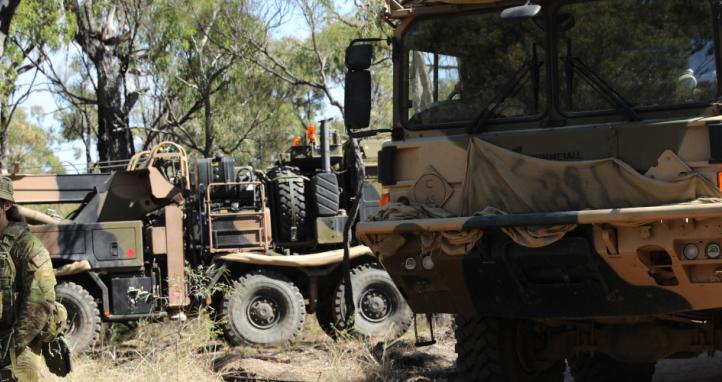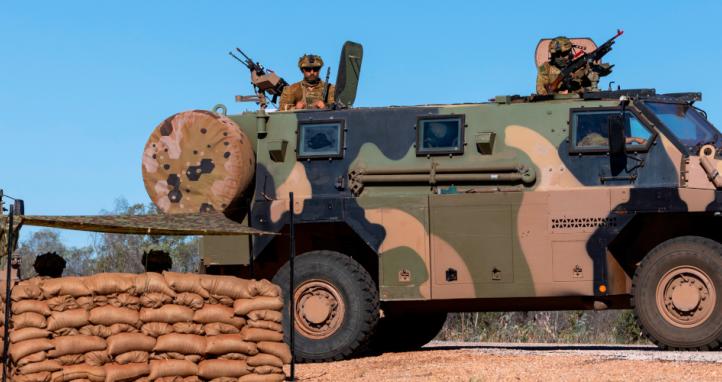Private Percival (Percy) Eric Gratwick VC (1902-1942, 40yo)

Percy Gratwick was born in Katanning, Western Australia on 19 October 1902. After completing his education, he worked in a range of occupations across various industries. Initially rejected from military service due to a broken nose, he paid for corrective surgery and was eventually accepted into the Australian Imperial Force on 20 December 1940.
He departed Australia in July 1941 and, by September, had joined the 2nd/48th Battalion, which was under siege at Tobruk. A month later, the unit was redeployed to Palestine. In June 1942, they arrived in Egypt and fought in the battles around Tel el Eisa in July. Gratwick, initially held in reserve, rejoined his battalion on 10 August. His first major combat engagement came at the Second Battle of El Alamein.
Shortly after midnight on 26 October 1942, the 2nd/48th launched an assault on Trig 29, a modest rise dominating barren terrain that was strongly defended by German forces. Gratwick’s platoon suffered heavy casualties—its leadership was lost, and only seven men remained. Pinned down by machine-gun and mortar fire, the unit was unable to advance. Without waiting for orders, Gratwick rose into the firestorm and charged the enemy with a grenade in one hand and rifle in the other. He eliminated the nearest position, killing its occupants and destroying a mortar team. Continuing his attack, he reached a second post and, though mortally wounded, succeeded in neutralising it. His fearless action broke the stalemate, inspired his fellow soldiers, and led to the capture of the objective. He was posthumously awarded the Victoria Cross.
Gratwick was buried in the El Alamein War Cemetery. His legacy has been honoured across Western Australia: Mount Gratwick was named in his memory in 1948, and the Gratwick Soldiers’ Club opened at Campbell Barracks in 1956. In the 1960s, the town of Port Hedland commemorated him by naming its hall, swimming pool, and a street after him.
Captain Robert Cuthbert Grieve VC (1889-1957, 68yo)

Robert Grieve was born in Brighton, Victoria on 19 June 1889. After completing his education, he worked as a commercial traveller in the softgoods trade, often journeying between states. He enlisted in the Australian Imperial Force on 16 June 1915 and, following nine months of service with the Victorian Rangers, was posted to the 37th Battalion.
Grieve was commissioned as an officer on 17 January 1916 and promoted to Lieutenant in May. He rose to the rank of Captain on 19 April 1917, taking command of 'A' Company. The battalion had been tested in several raids but had not yet faced a major engagement until the battle of Messines in June 1917. On the night of 6 June, the 37th Battalion endured a heavy gas attack during its approach march. Reaching their assembly trenches by dawn, the troops then advanced under intense artillery fire, suffering substantial losses.
On the afternoon of 7 June, Grieve’s company was positioned on the battalion’s left flank. Their advance was halted by a strong German pillbox situated behind a belt of wire. An attempted mortar strike failed to neutralise the position. Grieve, the only officer in 'A' Company who remained uninjured, took it upon himself to silence the threat. Armed with a cache of Mills Bombs, he advanced alone under fire, taking cover as he moved forward. His grenades took out part of the pillbox crew, allowing him to get close enough to bomb the remaining defenders in an adjacent trench. With the obstacle cleared, his company secured the objective—just moments before Grieve was seriously wounded by a sniper. His courage and leadership earned him the Victoria Cross, making him the first in the 3rd Division to receive the honour.
Evacuated to England for treatment, Grieve rejoined his unit in late October 1917. However, he soon fell ill with trench nephritis and double pneumonia and was sent back to Australia in May 1918. After the war, he established a successful business in Melbourne, serving as managing director until his death in 1957. He was buried with military honours at Springvale Cemetery.
Grieve remained closely connected to his former school, Wesley College, where his Victoria Cross was formally presented in 1959.
Last Reviewed 06/2025









